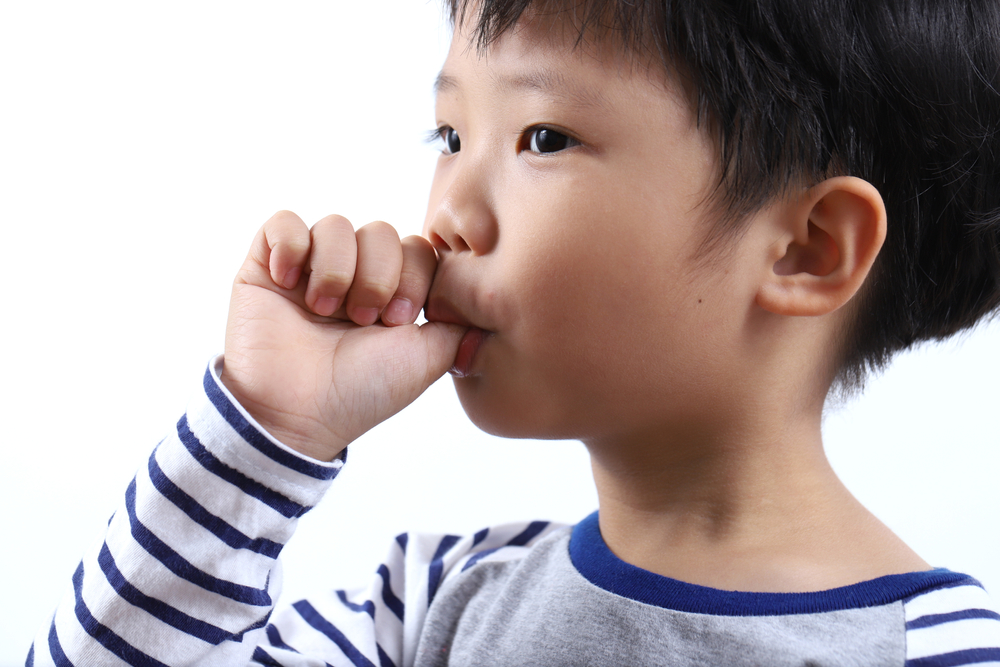
Problems Caused by Thumb Sucking and How to Treat Them
Thumb Sucking
Thumb sucking is a common habit for babies and toddlers. It helps them self-soothe and feel secure, especially during stressful moments or before falling asleep. Many children naturally stop sucking their thumbs between ages two and four, but some continue the habit for longer.
When thumb sucking continues past the toddler years, it can start to affect how a child’s teeth and jaws grow. At that point, the habit can cause long-term changes that affect your child’s bite, speech, and even their confidence. That’s when parents like you may need to take action.
Problems Caused by Thumb Sucking
If your child keeps sucking their thumb beyond age four or five, it may lead to changes in their mouth and how they speak. These changes happen slowly over time, so they’re often hard to spot until they become more noticeable. The earlier you understand the risks, the sooner you can decide what to do.
Here are the most common problems caused by ongoing thumb sucking:
- Open bite
- Increased overbite
- Upper jaw development issues
- Speech difficulties
- Changes in palate shape
- Social and self-esteem difficulties
Each of these issues connects to how your child’s mouth forms and functions as they grow. Next, we’ll look at what these problems actually mean for your child’s health and daily life.
1. Open Bite
An open bite happens when the upper and lower front teeth don’t touch when your child bites down. This space forms because the constant pressure from thumb sucking pushes the front teeth forward or apart. Over time, the teeth stay in this position, even when the thumb is no longer in the mouth.
An open bite can make it hard for your child to bite into foods like sandwiches or apples. It can also affect how they speak, especially when making sounds like “s” or “th.” Dentists often need to correct an open bite with orthodontic treatment later on.
2. Increased Overbite
Thumb sucking often pushes the upper front teeth further out than they should be. When this happens, the top teeth stick out beyond the bottom teeth in a way that’s more noticeable than usual. This condition is called an increased overbite.
A pronounced overbite can make the front teeth more likely to chip or break during a fall. It can also affect how your child’s lips close naturally. Children with this kind of bite may feel self-conscious about how their teeth look in photos or when they smile.
3. Upper Jaw Development Issues
Frequent thumb sucking puts pressure on the roof of the mouth and the upper jaw. This pressure can change how the upper jaw grows, making it too narrow or misaligned. When the jaw doesn’t grow the right way, it affects how the top and bottom teeth fit together.
If the upper jaw becomes too narrow, your child might develop crowding or a crossbite. These issues often require orthodontic correction, sometimes with expanders or braces. Catching the problem early can prevent more complicated treatments later.
4. Speech Difficulties
Thumb sucking that goes on too long can affect how your child learns to form certain sounds. The way the thumb rests against the palate and teeth may lead to speech patterns that are harder to correct as they get older.
Speech problems often show up as lisps or difficulty with “s,” “z,” or “th” sounds. Children who struggle with these sounds might avoid speaking in front of others, especially at school. Speech therapy can help, but breaking the habit early can prevent these issues from forming in the first place.
5. Changes in Palate Shape
Your child’s palate, or the roof of the mouth, is soft and flexible when they’re young. Thumb sucking can apply enough pressure to change its shape. A high or arched palate is one common result.
A misshapen palate can lead to crowding of the teeth and may make nasal breathing more difficult. Since the palate is part of the airway, changes here can also affect breathing during sleep. A proper bite depends on the palate forming naturally without outside pressure.
6. Social and Self-Esteem Difficulties
Older children who continue to suck their thumbs may feel embarrassed, especially if their friends notice. This embarrassment can lead to teasing, shame, or a desire to hide the habit. Social situations like school or sleepovers can become stressful.
Thumb sucking may also make children more aware of how their teeth look if the habit has already changed their bite. When a child becomes self-conscious, it can affect their confidence in social settings. Addressing the habit early helps protect both their oral health and their sense of self-worth.
At What Age is Thumb Sucking Normal?
Thumb sucking is normal in babies and toddlers. Most children stop on their own between the ages of two and four.
If your child continues the habit past age four, it’s a good idea to monitor how often and how forcefully they do it. Once adult teeth begin to come in, thumb sucking can cause more serious changes in the mouth.
Should You Treat Your Child’s Thumb Sucking?
You should treat thumb sucking if your child continues after age four, after their baby teeth start falling out, or if you notice changes in their bite or speech. Not all children need treatment, but if the habit is frequent and strong, it’s unlikely to stop without some help. Taking action early can prevent long-term dental problems.
How Do You Treat Thumb Sucking?
The first step in treatment is usually at home. Talk to your child about why it’s important to stop. Use simple, positive language and explain how their teeth and speech can be affected. You can try reward charts, gentle reminders, or setting up a special goal together. Some parents find that bedtime routines or comfort items help reduce the urge to suck their thumb.
If home strategies don’t work, a dentist may recommend a habit breaking appliance. These appliances are custom-made and fixed to the upper teeth. They block the thumb from resting comfortably against the roof of the mouth, which takes away the satisfaction of the habit. Most children wear the appliance for a few months and adjust to it quickly. In many cases, it stops the habit completely without needing further treatment.
See our guide on
Types of Habit Breaking Appliances and Their Cost
Can Dental Issues from Thumb Sucking Be Reversed? – Yes
Yes, many dental changes from thumb sucking can be reversed—especially if the habit stops while your child still has their baby teeth. Teeth often shift back into a better position on their own once the pressure is gone. That’s why it’s best to act before the adult teeth grow in.
If permanent teeth are already affected, your dentist or orthodontist can correct the bite with professional treatment. This may involve braces, expanders, or other orthodontic tools. The earlier treatment begins, the simpler and shorter it usually is. A dentist can assess the changes, explain your options, and guide you and your child through a plan that fits their needs.
Kids Dental Group Can Help with Thumb Sucking
We understand how stressful it can feel when your child won’t stop sucking their thumb, especially when it starts to affect their teeth or speech. You’re not alone, and we’re here to help make the process easier—for both you and your child.
At Kids Dental Group, we’ve helped many families break the habit with care that’s supportive, respectful, and effective. If you’re unsure whether your child needs help, we invite you to book a free consultation with our team.
You can visit us at any of our convenient locations in Richmond Hill, Markham, Stouffville, or Hillcrest. We’ll walk you through your options and help you decide what’s best for your child.
Contact us today
